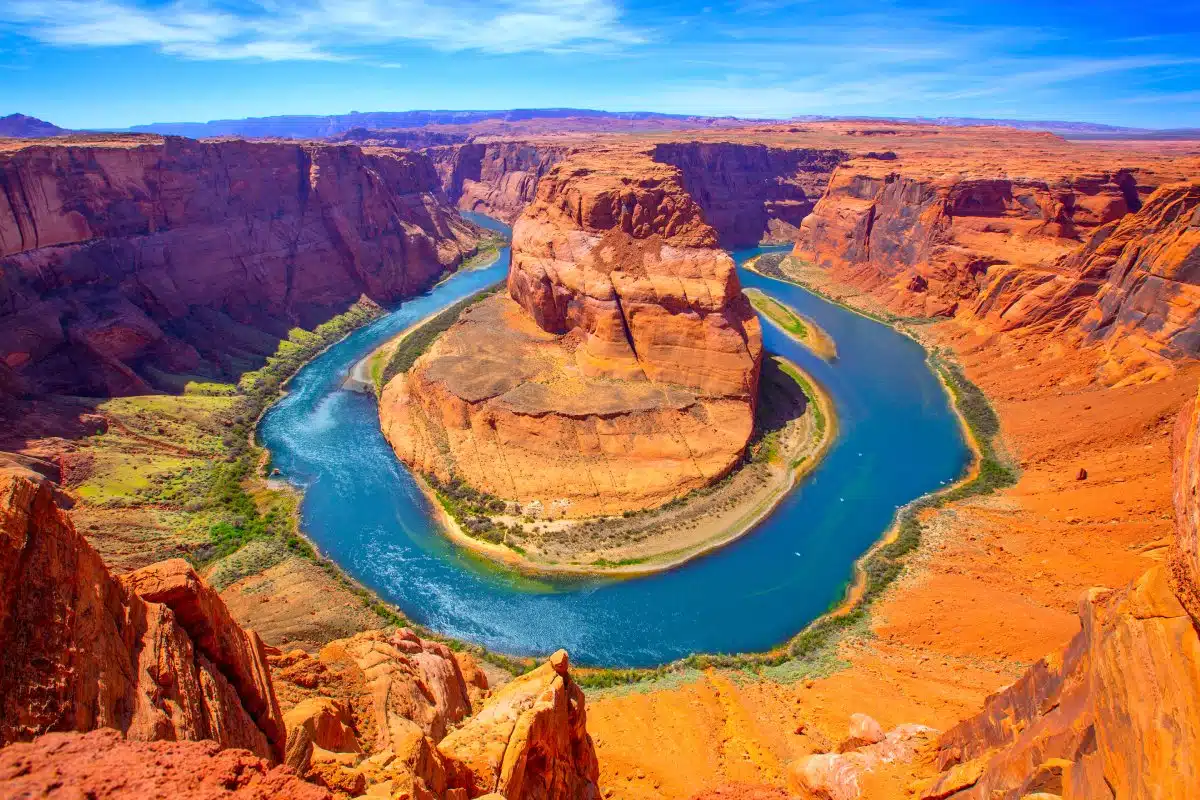The Most Instagrammable Places in the USA ventures beyond the well-trodden path of iconic landmarks to spotlight the hidden gems that promise to invigorate your Instagram feed. This guide shuns the predictable in favor of the unexpected, offering a fresh perspective on America’s breathtaking landscapes. From the secluded beaches of Big Sur to the vibrant urban art of Wynwood Walls, each destination highlights the USA’s diverse beauty. Prepare to explore the lesser-known yet equally spectacular scenes that await your discovery and documentation.
1. Big Sur, California
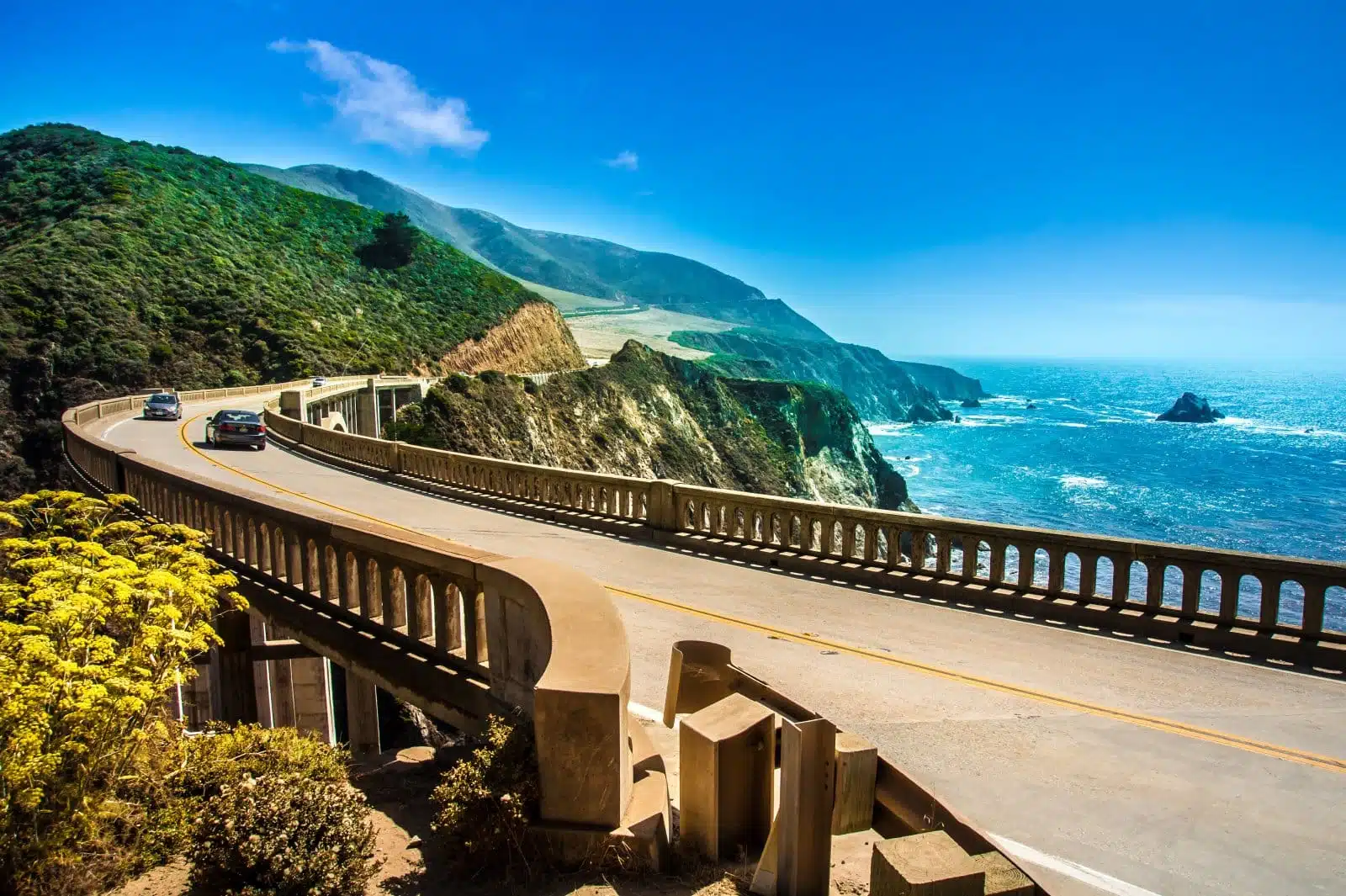
Image Credit: Shutterstock / Michael Urmann
Big Sur, a 70-mile stretch of California’s central coast, is where the rugged cliffs meet the relentless waves of the Pacific Ocean. This area is a destination and a journey along the Pacific Coast Highway, offering awe-inspiring vistas at every turn. The landscape is a dramatic blend of ocean, mountains, and forest, with the misty mornings adding a mystical quality to the already ethereal beauty. Big Sur’s appeal lies in its natural diversity, from the serene beaches of Pfeiffer to the ancient redwoods of Julia Pfeiffer Burns State Park. The region’s isolation has preserved its untouched allure, making it a sanctuary for those seeking tranquility away from the hustle and bustle of city life.
Insider’s Tip: Aim for a sunset shot of McWay Falls in Julia Pfeiffer Burns State Park for standout Instagram content in Big Sur. The 80-foot waterfall against the backdrop of the Pacific Ocean is mesmerizing during the golden hour. Capture it from the designated overlook on the Waterfall Trail for a clear, majestic view. Use a longer exposure to enhance the waterfall’s flow against the serene beach below.
When to Travel: The best time to visit Big Sur is during spring (April to May) when the wildflowers are in bloom or fall (September to November) when the weather is mild and the summer crowds have dissipated.
How to Get There: Big Sur is accessible via the Pacific Coast Highway (Highway 1) from San Francisco to the north or Los Angeles to the south. The drive itself is part of the experience, with numerous viewpoints along the way.
2. Red Rocks Park and Amphitheatre, Colorado
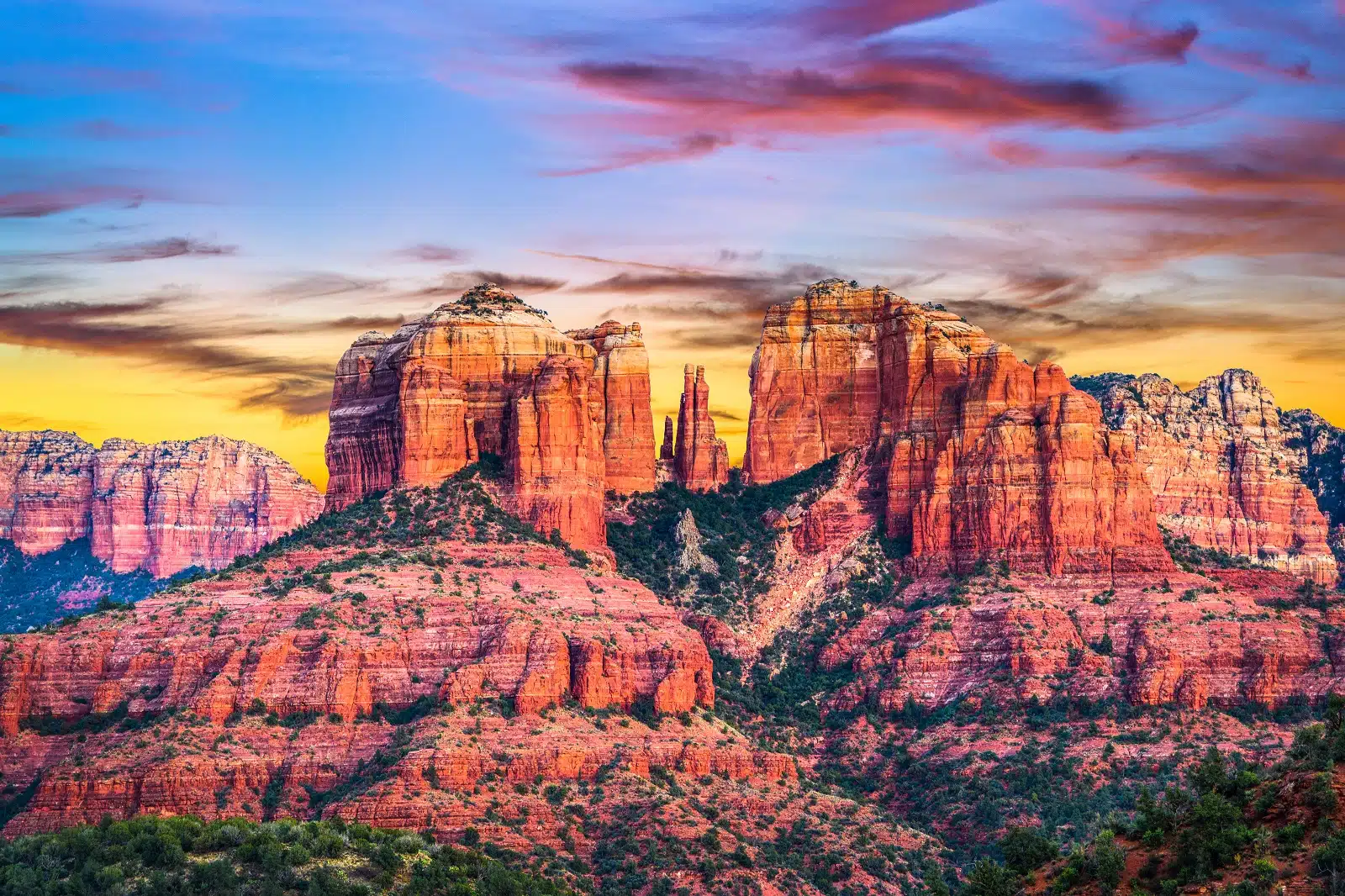
Image Credit: Shutterstock / cpaulfell
Nestled within the rugged terrain of Morrison, Red Rocks Park and Amphitheatre showcase the natural beauty and acoustic perfection found only in the heart of the American West. This open-air amphitheater, surrounded by towering red sandstone formations, offers an experience unlike any other, with its structure seamlessly integrated into the natural landscape. The park spans over 700 acres of geological wonders and hiking trails that boast panoramic views of the Denver metropolitan area and the plains. The park’s unique geological formations, rich in history and prehistoric fossils, provide a stunning backdrop for photographers and nature enthusiasts.
Insider’s Tip: For the most captivating Instagram shots, embark on the Trading Post Trail at sunrise or sunset. The soft lighting accentuates the red and orange hues of the rocks, creating a dramatic contrast with the sky. When empty during off-concert times, the amphitheater offers a surreal and majestic setting for photos.
When to Travel: The best times to visit are during the spring and fall months when the weather is mild, and the natural scenery is at its most vibrant. Summer concerts can also provide unique photo opportunities but expect larger crowds.
How to Get There: Red Rocks Park and Amphitheatre is located about 10 miles west of Denver. The easiest way to get there is by car, via Interstate 70, taking exit 259 toward Morrison. Parking is available on-site.
3. The Montauk Lighthouse, New York
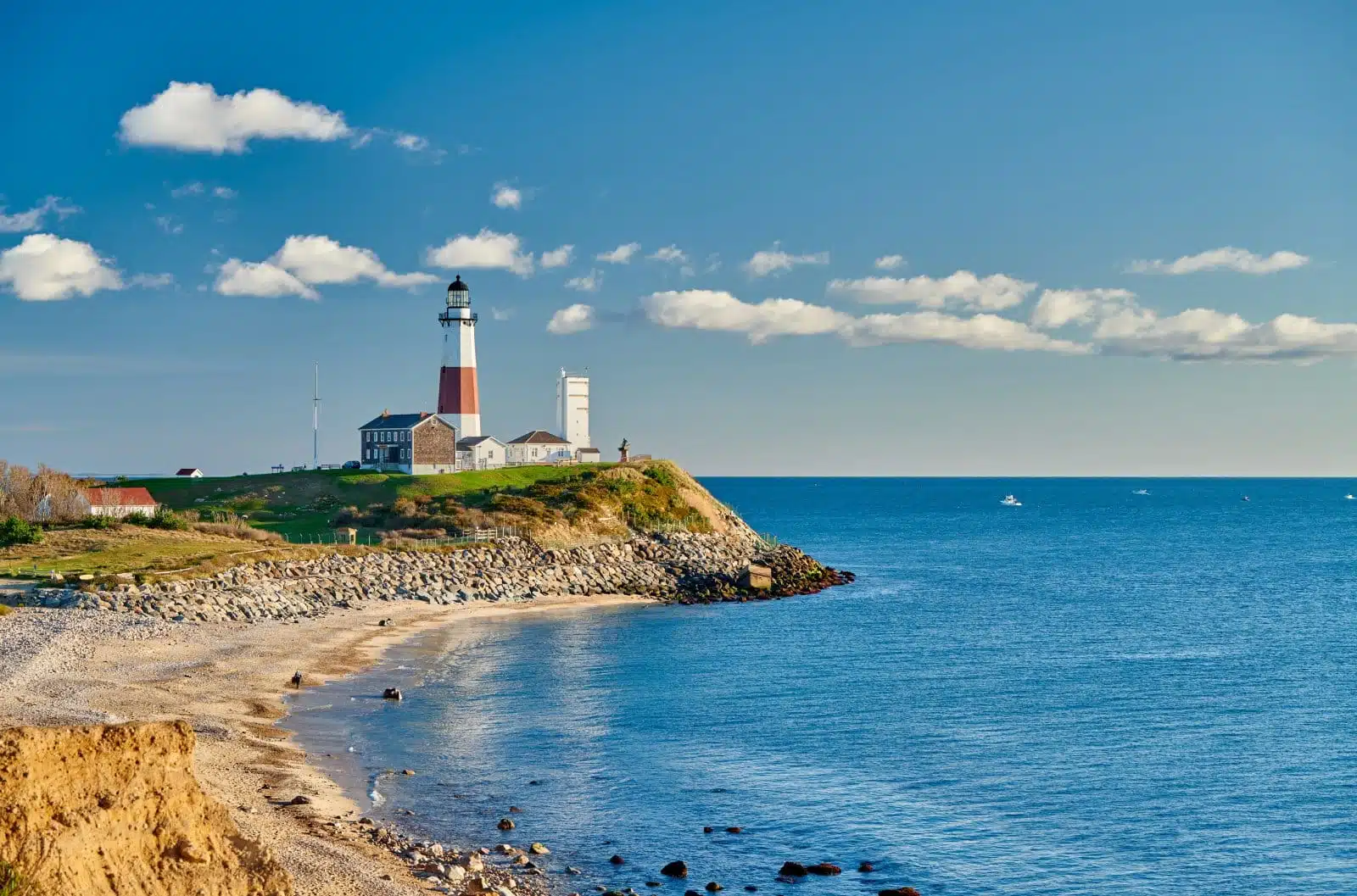
Image Credit: Shutterstock / haveseen
Perched at the easternmost tip of Long Island, the Montauk Point Lighthouse is more than just a beacon for ships; it’s a symbol of New York’s rich maritime history and a beacon for photographers seeking to capture the essence of New England’s rugged coastline. The lighthouse’s striking white and red facade, set against the backdrop of the Atlantic Ocean, offers a picturesque contrast that is as captivating in stormy weather as it is on a clear day. Surrounding the lighthouse, Montauk Point State Park provides a natural canvas of rocky shores, wild waves, and diverse wildlife, making it a year-round destination for those looking to explore the natural beauty of The Hamptons.
Insider’s Tip: Capture the lighthouse at golden hour for a stunning silhouette effect, or visit during a stormy day to photograph the dramatic interaction between the waves and the lighthouse. The nearby cliffs also offer a unique vantage point for wide-angle shots encompassing the ocean’s vastness.
When to Travel: Late spring through early fall offers the best weather conditions for photography, with longer days providing ample lighting. Winter brings a stark beauty to the lighthouse, ideal for those seeking more dramatic shots.
How to Get There: The Montauk Lighthouse is accessible by car via Montauk Highway (Route 27) to the end of Long Island. Public transportation options include the Long Island Rail Road to Montauk Station and a local taxi or bus service to the lighthouse.
4. Wynwood Walls, Florida
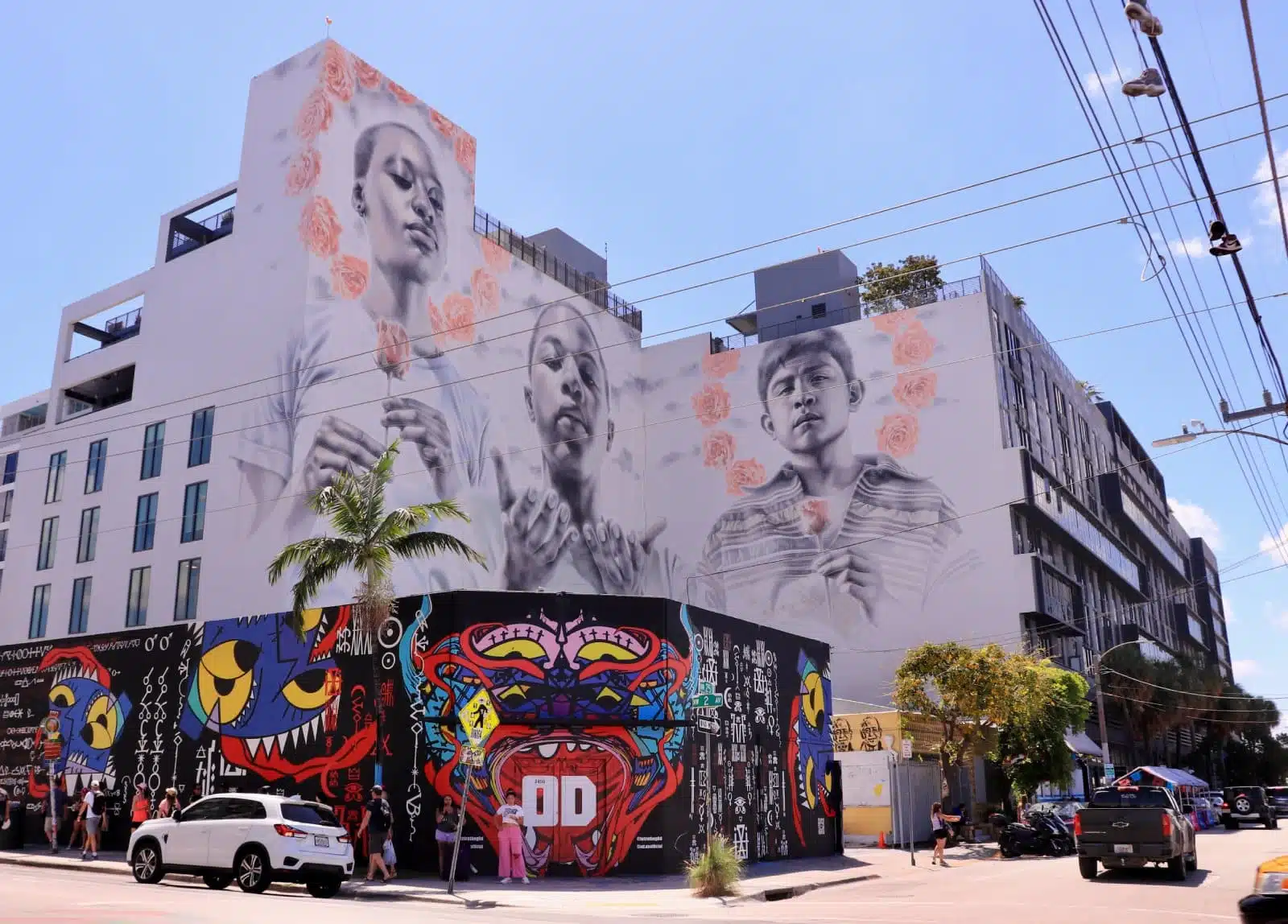
Image Credit: Shutterstock / Erika Cristina Manno
In the heart of Miami’s Wynwood neighborhood, has transformed the area into an open-air museum of urban art: the Wynwood Walls. This vibrant collection of murals and street art has become a cultural landmark since its inception in 2009, showcasing large-scale works by some of the world’s most renowned street artists. The Wynwood Walls offer visual stimuli, with each piece telling a unique story through its colors, patterns, and messages. This dynamic art scene extends to the surrounding galleries, shops, and cafes, making Wynwood a creative expression and innovation hub.
Insider’s Tip: For the most striking Instagram photos, visit the Wynwood Walls early in the morning or late in the afternoon to avoid the crowds and capture the artwork in the best light. Look for murals with vibrant colors or intriguing patterns that can add a dynamic background to your shots. Don’t forget to explore the lesser-known side streets for hidden gems.
When to Travel: Miami’s Wynwood neighborhood is a year-round destination, but the best time to visit is during Art Basel Miami Beach in early December, when the area comes alive with new murals, pop-up galleries, and a vibrant arts scene.
How to Get There: Wynwood Walls is located in Miami, Florida, and is easily accessible by car, bike, or public transportation. The closest airport is Miami International Airport (MIA). You can take a taxi, rideshare, or public transit to Wynwood from there.
5. Lake Tahoe, California
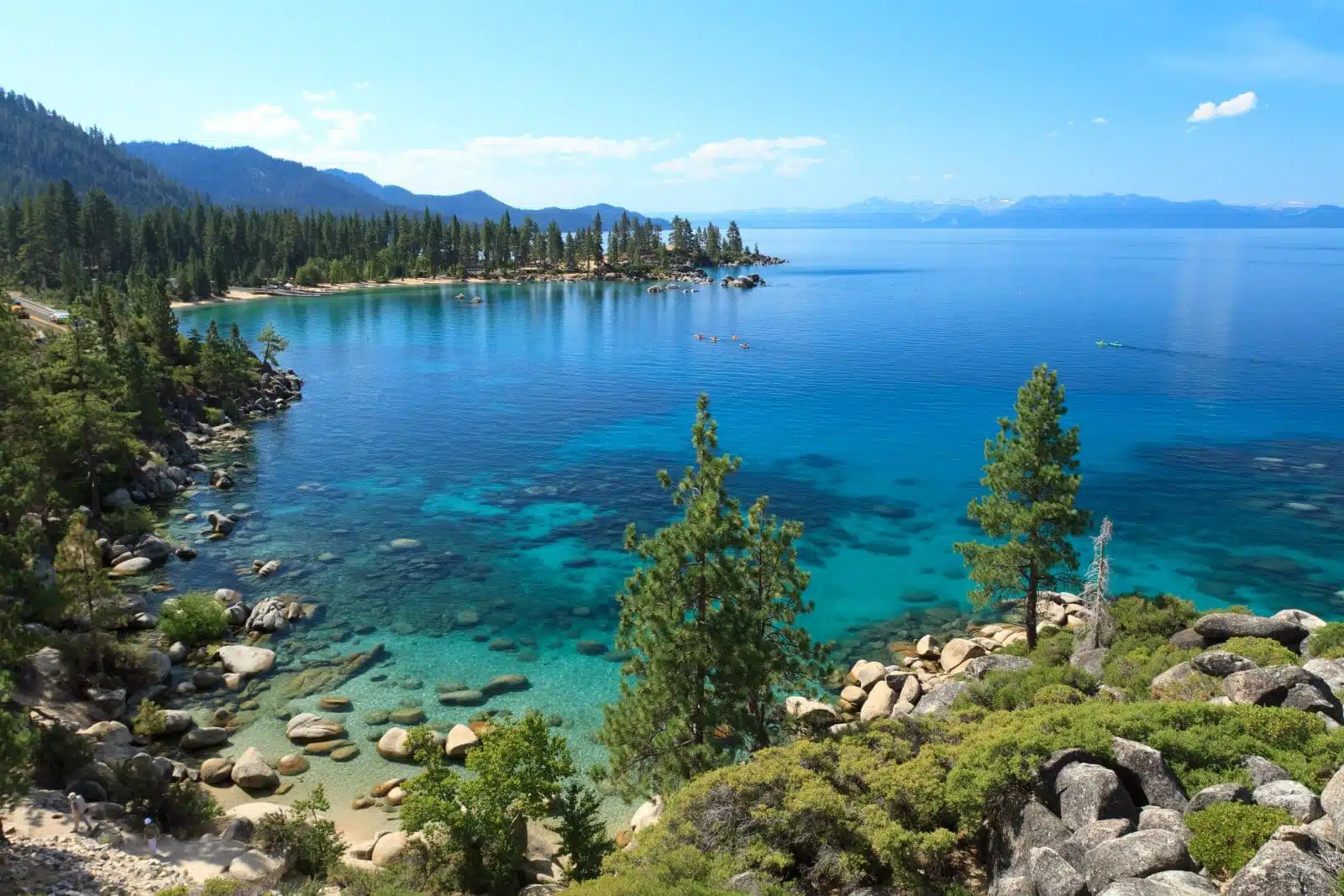
Image Credit: Shutterstock / topseller
Straddling the border between California and Nevada, Lake Tahoe is the Sierra Nevada Mountains. Known for its crystal-clear waters and surrounding peaks, it offers breathtaking natural beauty year-round. In the summer, its shores become a paradise for beachgoers, hikers, and water sports enthusiasts. In the winter, the area transforms into a premier skiing destination. The contrast between the deep blue lake and the rugged mountain landscape makes Lake Tahoe a photographer’s dream, offering endless opportunities to capture the American West’s natural beauty.
Insider’s Tip: Head to Emerald Bay State Park at sunrise for a postcard-perfect shot. The early morning light illuminates the lake and Fannette Island, creating a serene and stunning composition. In winter, capture the snow-capped mountains reflected in the lake for a magical winter wonderland scene.
When to Travel: Lake Tahoe is a year-round destination, with each season offering its unique charm. Summer (June to August) is ideal for water activities and hiking, while winter (December to February) is perfect for skiing and snowboarding.
How to Get There: The closest major airports to Lake Tahoe are Reno-Tahoe International Airport in Nevada and Sacramento International Airport in California. From there, you can rent a car or take a shuttle service to reach Lake Tahoe.
6. Nā Pali Coast State Park, Hawaii

Image Credit: Shutterstock / RossSheingold
The Nā Pali Coast, located on the northwest side of Kauai Island, Hawaii, has unparalleled natural beauty. This rugged coastline is characterized by dramatic cliffs, deep valleys, and pristine beaches, accessible only by hiking, boat, or helicopter. The isolation of the Nā Pali Coast has preserved its wild and untouched landscape, making it a must-visit for adventurers and photographers alike. The area’s rich biodiversity and cultural significance add to its allure, offering a glimpse into Hawaii’s natural heritage and ancient Hawaiian civilization.
Insider’s Tip: Take a helicopter tour at golden hour for the ultimate Instagram shot. The aerial perspective reveals the majestic scale and beauty of the cliffs and valleys, with the setting sun casting a golden glow over the landscape. For a more adventurous angle, hike the Kalalau Trail to capture breathtaking vistas from the ground.
When to Travel: The best time to visit the Nā Pali Coast is during the summer months (May to September) when the ocean conditions are calmer, making it safer for boat tours and kayaking.
How to Get There: The Nā Pali Coast is located on Kauai Island. The nearest airport is Lihue Airport (LIH). From there, you can rent a car to reach the coast or book a tour that includes transportation.
7. Los Angeles County Museum of Art (Lacma), California
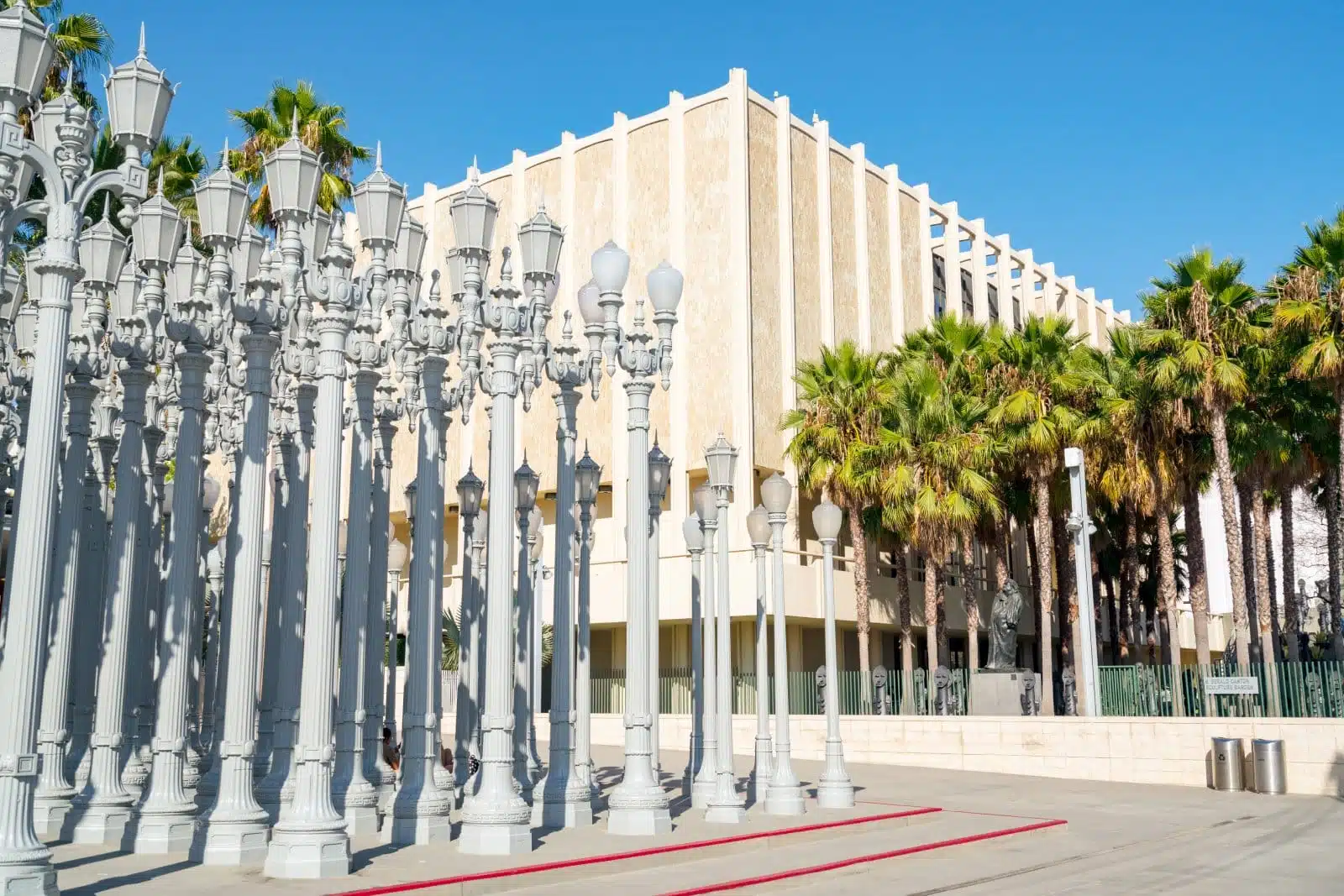
Image Credit: Shutterstock / Darren Tierney
The Los Angeles County Museum of Art, known as LACMA, highlights the cultural and artistic expression in the heart of Los Angeles. As the largest art museum in the western United States, LACMA hosts an impressive collection that spans the history of art from ancient times to the present. Beyond its vast galleries, the museum is home to several iconic outdoor installations that have become landmarks in their own right. Urban Light, a forest of restored street lamps from the 1920s and 1930s, and Levitated Mass, a massive suspended boulder, offer striking visuals that draw photographers and art lovers alike.
Insider’s Tip: Urban Light is most photogenic at dusk or dawn when the lamps are lit, and the sky’s changing colors provide a dramatic backdrop. For Levitated Mass, experiment with angles to capture the imposing scale of the boulder against the California sky.
When to Travel: LACMA is a year-round destination, but visiting on a weekday can help avoid the crowds for a more intimate experience with the art and installations.
How to Get There: LACMA is located on Wilshire Boulevard in Los Angeles. The museum is accessible by car, with parking available on-site or public transportation, and several bus lines stop nearby.
8. Half Dome From Glacier Point, Yosemite National Park, California

Image Credit: Shutterstock / Tomas Nevesely
Yosemite National Park is a treasure trove of natural wonders, and the view of Half Dome from Glacier Point offers one of the most iconic vistas in the park. This granite dome rises nearly 5,000 feet above Yosemite Valley and has been a focal point for photographers and nature enthusiasts for over a century. Glacier Point provides a panoramic view of the valley, Half Dome, and the High Sierra in the distance, making it a must-visit location for anyone seeking to capture the majesty of Yosemite.
Insider’s Tip: For a unique perspective, visit Glacier Point at sunrise or sunset when the light casts a golden hue on Half Dome and the surrounding peaks. The changing light conditions can dramatically alter the landscape’s appearance, offering multiple opportunities for stunning photographs.
When to Travel: The road to Glacier Point is typically open from late May to November, weather permitting. The summer months offer clear views, but visiting in the fall can provide the added beauty of autumn foliage.
How to Get There: Glacier Point is accessible by car via the Glacier Point Road, which branches off from the Wawona Road (Highway 41) inside Yosemite National Park. Shuttle services and guided tours are also available within the park.
9. Badlands National Park, South Dakota
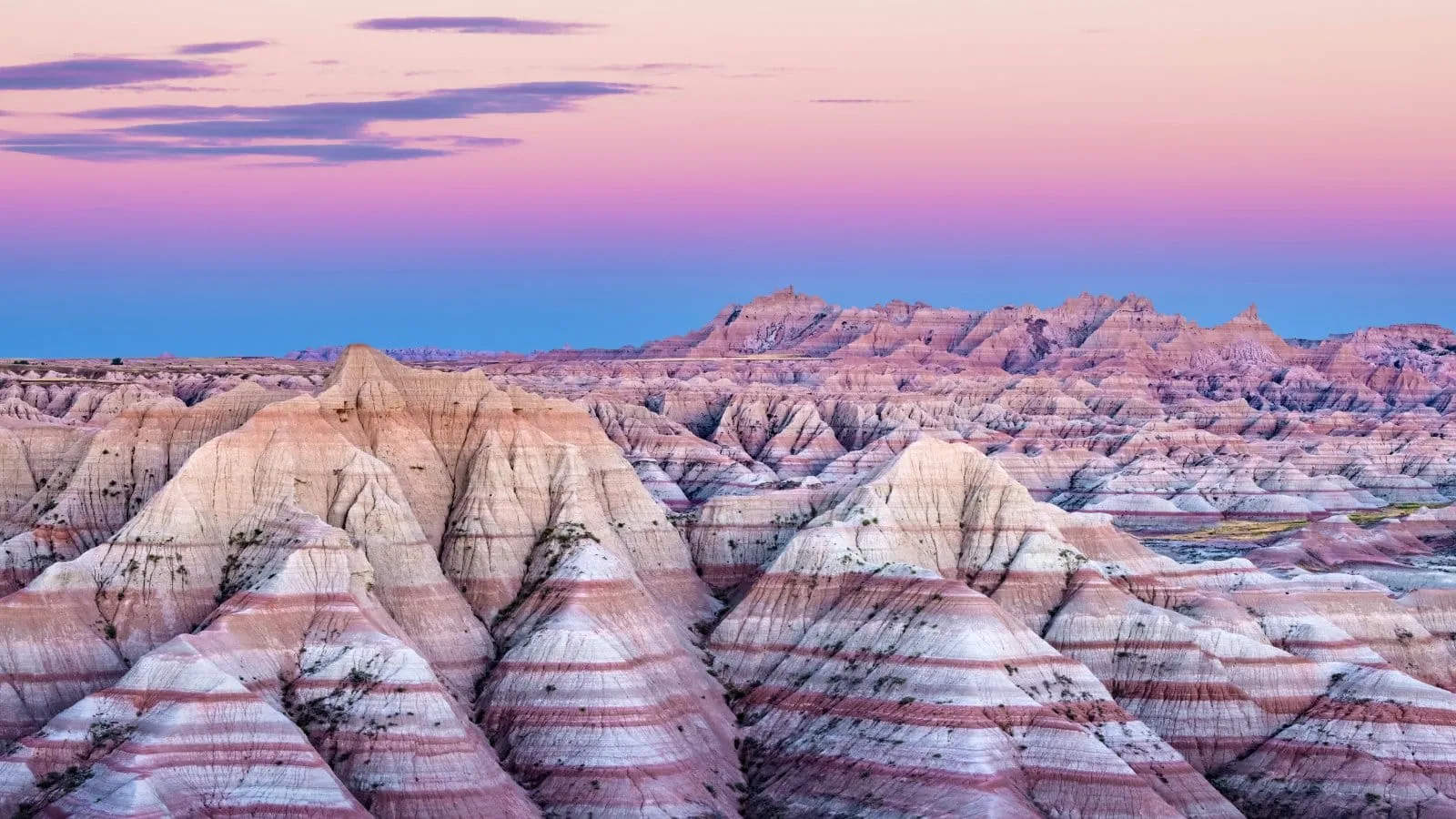
Image Credit: Shutterstock / Wick Smith
Badlands National Park in South Dakota has striking geological formations, deep canyons, and towering spires. The park’s rugged beauty highlights the natural forces of erosion that have sculpted this unique terrain over millions of years. The Badlands are also rich in fossils, offering a glimpse into the ancient past of this region. With its dramatic landscapes and abundant wildlife, including bison, bighorn sheep, and prairie dogs, the park provides endless opportunities for photography and exploration.
Insider’s Tip: For the most dramatic shots, visit the Pinnacles Overlook at sunrise or sunset. The sun’s low angle accentuates the textures and colors of the formations, creating a stunning contrast against the sky.
When to Travel: The best time to visit Badlands National Park is in the spring (April to May) or fall (September to October) when temperatures are more moderate, and the crowds are smaller.
How to Get There: Rapid City Regional Airport in South Dakota is the nearest airport. From there, it’s about a one-hour drive to the park entrance. The park is accessible by car, and there are several scenic drives and overlooks along the main road through the park.
10. Horseshoe Bend, Arizona

Image Credit: Shutterstock / lunamarina
Horseshoe Bend is a breathtaking natural wonder located near the town of Page, Arizona. This dramatic curve in the Colorado River has carved a 270-degree horseshoe-shaped bend into the landscape, creating a stunning vista that has become iconic on social media platforms. The overlook provides a spectacular view of the river below, with the red and orange hues of the rock formations contrasting beautifully against the blue-green waters. Horseshoe Bend is a testament to the power of natural erosion and a must-visit destination for photographers and nature lovers.
Insider’s Tip: To capture the full scope of Horseshoe Bend, use a wide-angle lens and visit during the midday when the sun is directly overhead, minimizing shadows in the canyon. Early morning or late afternoon can also provide softer lighting for a different mood.
When to Travel: Horseshoe Bend can be visited year-round, but spring (March to May) and fall (September to November) offer the most pleasant temperatures for hiking and photography.
How to Get There: Horseshoe Bend is located just outside Page, Arizona. The closest major airport is in Flagstaff, Arizona, with Page having a smaller regional airport. From Page, it’s a short drive south on Highway 89 to the Horseshoe Bend parking area, followed by a 0.75-mile hike to the overlook.
The Bottom Line
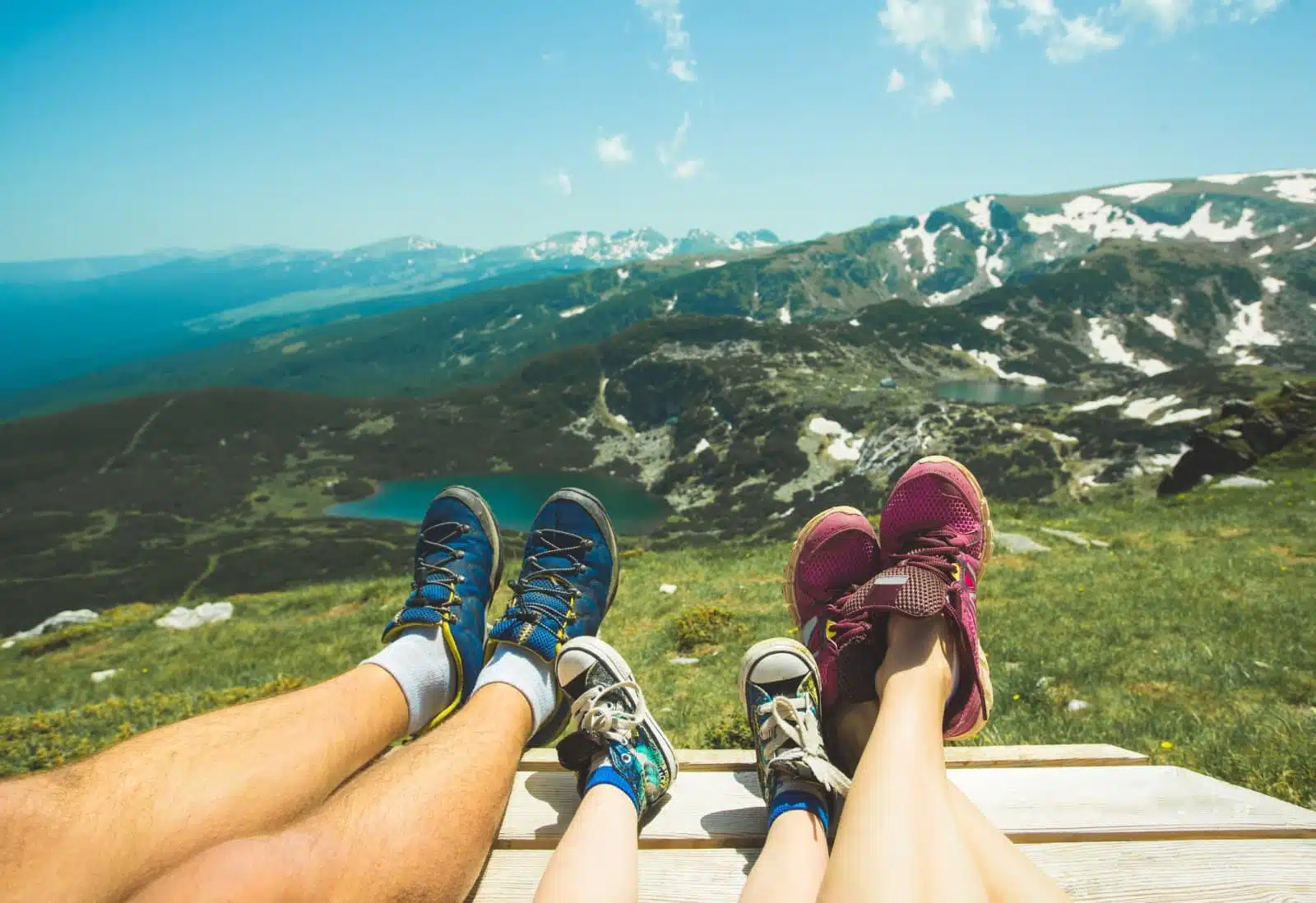
Image Credit: Shutterstock / Grekov’s
The journey through America’s most Instagrammable places reveals the unparalleled diversity and beauty of the country’s landscapes and cultural landmarks. From the artistic enclaves of urban centers to the majestic solitude of natural wonders, each destination offers a unique perspective and an unforgettable experience. As you curate your Instagram feed with these stunning visuals, remember that each photograph tells a story of exploration, discovery, and the enduring allure of the American spirit.
More From The Green Voyage
Top 10 Trending Travel Destinations 2024
6 Essential Banking Apps for International Travel – Managing Your Finances on the Go
Traveling With Kids – 10 Tips to Create Memorable Family Holidays
The post The 10 Most Instagrammable Places in the USA 2024 first appeared on The Green Voyage.
Featured Image Credit: Shutterstock / lunamarina.
For transparency, this content was partly developed with AI assistance and carefully curated by an experienced editor to be informative and ensure accuracy.
Tips for Trip Success
Book Your Flight
Find an inexpensive flight by using Kayak, a favorite of ours because it regularly returns less expensive flight options from a variety of airlines.
Book Your Hotel or Special Accommodation
We are big fans of Booking.com. We like their review system and photos. If we want to see more reviews and additional booking options, we go to Expedia.
You Need Travel Insurance!
Good travel insurance means having total peace of mind. Travel insurance protects you when your medical insurance often will not and better than what you get from your credit card. It will provide comprehensive coverage should you need medical treatment or return to the United States, compensation for trip interruption, baggage loss, and other situations.Find the Perfect Insurance Plan for Your Trip
